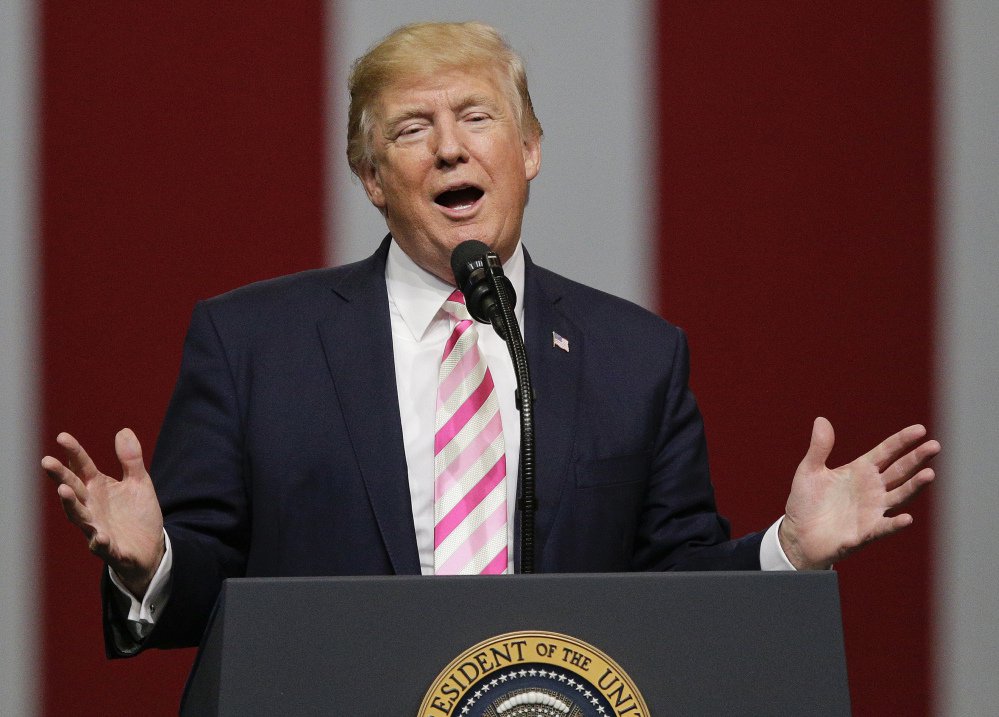With all the focus on health care, tax cuts and regulatory rollback, there has been little attention left for an idea of President Donald Trump’s that might actually do some good: investing in the nation’s roads, bridges, rails and ports. As anyone who has sat in a traffic jam, languished on a delayed subway train or struggled to navigate a crowded airport can tell you, more investment could enhance economic growth and Americans’ quality of life. Trump has signaled high ambitions, mentioning infrastructure in his otherwise dismal inaugural address and floating a $1 trillion building plan.
But promising everyone brand-new highways is easy. Paying for them is harder. The president’s plan would supposedly include $200 billion in public funding, with the balance coming from private funds. Even finding a couple hundred billion would be a tough lift. The country’s Highway Trust Fund should be adequately financed by the federal gasoline tax. Yet Congress has refused to raise the tax since 1993, and inflation erodes the value of the revenue it raises every year.
This is why it was surprising that Gary Cohn, one of Trump’s chief economic advisers, reportedly floated raising the gas tax in a recent meeting with members of Congress. The president himself expressed openness to increasing the tax in an April interview, saying he would consider an increase if the money went to highways. Apparently the idea is still on the table in the White House.
The news does not make a gas-tax hike likely. It would take a sustained, focused campaign from the Trump administration to make increasing the gas tax even a remote possibility in the GOP House.
This moment should not pass by, however, without noting that a gas-tax increase would be exactly the right policy. The gas tax has been a fairly efficient way of requiring that those who use the roads, particularly those who use them heavily, pay for them, rather than having society at large subsidize their way of life. Set high enough, the tax discourages excessive driving. People drive marginally fewer trips if their gasoline bills are a bit higher. They also tend to avoid buying larger cars and trucks, which take a bigger toll on public roads. As a side benefit, the gas tax can also account for and discourage some of the social costs associated with driving — traffic and air degradation, for example. Yet the tax has idled at 18.4 cents per gallon for a quarter-century. Faced with infrastructure spending needs, many states, including red ones, have recently upped their state-level gas taxes. A reasonable Congress would share their rationality.
Cohn’s openness on the gas tax may not amount to much. But it is nevertheless a refreshing dose of policy sanity in an otherwise dismal year.
Editorial by The Washington Post
Copy the Story LinkSend questions/comments to the editors.



Success. Please wait for the page to reload. If the page does not reload within 5 seconds, please refresh the page.
Enter your email and password to access comments.
Hi, to comment on stories you must . This profile is in addition to your subscription and website login.
Already have a commenting profile? .
Invalid username/password.
Please check your email to confirm and complete your registration.
Only subscribers are eligible to post comments. Please subscribe or login first for digital access. Here’s why.
Use the form below to reset your password. When you've submitted your account email, we will send an email with a reset code.